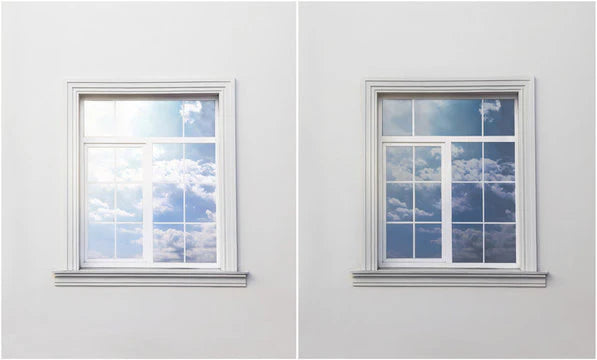
Can Window Film Help with Condensation?
Condensation on windows is a common issue that many homeowners face, particularly in areas with high humidity or significant temperature fluctuations. This moisture can lead to problems such as mold growth, wood rot, and decreased visibility. Fortunately, there are various solutions to reduce condensation, one of which is window film. In this article, we will explore how window film can help manage condensation, its benefits, and other strategies to mitigate moisture issues in your home.
Understanding Condensation
Condensation occurs when warm, moist air comes into contact with a cooler surface, like a window. When the air cools, it loses its ability to hold moisture, resulting in water droplets forming on the glass. This is especially prevalent during colder months when the temperature difference between the indoor and outdoor environments is significant.
Several factors contribute to window condensation, including:
- Humidity Levels: Higher humidity indoors increases the likelihood of condensation.
- Temperature: Cold outdoor temperatures can cool the glass surface.
- Window Quality: Older, single-pane windows are more susceptible to condensation than modern double or triple-pane windows.
How Can Window Film Help?
While window film isn't a direct solution for eliminating condensation, it can play a significant role in managing the factors that contribute to it. Here are several ways window film can help:
1. Improving Insulation
Thermal Resistance: Heat-insulating window films can enhance the thermal performance of your windows. By reflecting heat back into your home during winter months, these films help maintain a more consistent indoor temperature. This reduces the likelihood of cold spots on the glass, minimizing the temperature differential that leads to condensation.
Low-E Window Films: Low emissivity (Low-E) films are designed to keep heat inside during the winter and outside during the summer. These films can significantly improve your windows' insulation properties, helping to keep the interior surface of the glass warmer, which reduces the chances of condensation forming.
2. Blocking UV Rays
Reduced Humidity: UV rays from sunlight can contribute to the humidity levels inside your home. By applying window film that blocks UV radiation, you can help keep your indoor environment drier. This, in turn, can reduce the likelihood of condensation forming on your windows.
3. Enhancing Airflow
Improved Ventilation: Certain window films can be paired with ventilation solutions to enhance airflow within your home. For instance, window films that allow for better light transmission can also encourage homeowners to open windows more frequently, allowing fresh air to circulate and reducing indoor humidity levels.
Additional Benefits of Window Film
In addition to helping with condensation, window film offers several other advantages that can enhance your home’s comfort and efficiency:
1. Energy Efficiency
Window film can significantly reduce energy costs by improving insulation. By keeping your home cooler in summer and warmer in winter, you’ll rely less on heating and cooling systems, leading to lower energy bills.
2. UV Protection
Window film blocks up to 99% of harmful UV rays, protecting your skin and preventing fading of furniture, flooring, and artwork. This added layer of protection enhances the longevity of your interiors.
3. Glare Reduction
By minimizing glare from sunlight, window film makes your living space more comfortable. This is particularly beneficial in home offices or living areas where screen use is frequent.
4. Increased Privacy
Window film can enhance privacy by limiting visibility from the outside while still allowing natural light to filter in. This can be especially important for ground-level windows.
Other Strategies to Reduce Condensation
While window film can help mitigate condensation issues, it’s essential to consider additional strategies to tackle humidity and moisture levels in your home:
- Use Dehumidifiers: These devices can help reduce humidity levels, making condensation less likely.
- Ventilation: Ensure that areas prone to moisture, such as kitchens and bathrooms, are adequately ventilated. Consider using exhaust fans during and after cooking or showering.
- Regular Maintenance: Inspect and repair any leaks around windows and doors to prevent drafts that can contribute to condensation.
- Upgrade Windows: If condensation is a significant issue in your home, consider investing in energy-efficient, double- or triple-pane windows designed to reduce thermal transfer.
Conclusion
In summary, while window film is not a standalone solution for eliminating condensation, it can significantly improve your home's insulation, reduce humidity levels, and enhance energy efficiency. By choosing the right window film, you can create a more comfortable living environment while minimizing the chances of condensation forming on your windows.
If you’re interested in learning more about how window film can help with condensation and improve your home's overall efficiency, contact the Window Tint Company. Our team of experts can guide you in selecting the best film for your needs, ensuring you enjoy all the benefits it has to offer.
